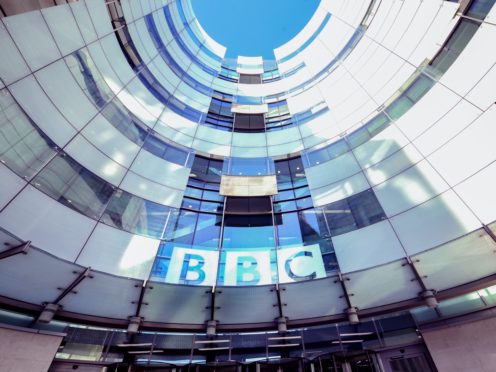Traditional UK broadcasting is unlikely to survive without a radical overhaul of legislation, the TV regulator has warned.
Ofcom said that public service broadcasters – such as the BBC, ITV, Channel 4 and Channel 5 – are “at a critical juncture”.
It said new laws and rules are necessary for them to compete with US giants like Netflix and Amazon Prime.
Public service broadcasting matters hugely to people, society and our economy. But it’s under threat in the digital world.
Broadcasters need to innovate, and we need a radical shakeup of TV rules and laws. Read and respond to our findings: https://t.co/HYI8wgESt9 pic.twitter.com/eDsHB1lLS4
— Ofcom (@Ofcom) December 8, 2020
Ofcom chief executive Dame Melanie Dawes said: “Our traditional broadcasters are among the finest in the world.
“But television has witnessed a blizzard of change and innovation, with audiences turning to online services with bigger budgets.
“For everything we’ve gained, we risk losing the kind of outstanding UK content that people really value.
“So there’s an urgent need to reform the rules, and build a stronger system of public service media that can flourish in the digital age.”
Ofcom said its research shows that people still value public service content, despite audiences increasingly turning to global streaming.
Drawing on research and evidence we’ve identified how the benefits of PSB could be sustained in an online world, including:
⚖️ Updated rules and laws📈 Options for stable funding🎬 New providers could help deliver public-service media https://t.co/HYI8wgESt9
— Ofcom (@Ofcom) December 8, 2020
Last year, only 38% of viewing by 16 to 34-year-olds was of traditional broadcast content.
Two in five viewers of streaming services say they can imagine watching no broadcast TV at all in five years’ time.
But Ofcom said public service broadcasters are credited with bringing society together, through events and programmes watched by millions.
News is seen as its most important offering, with more than seven in 10 viewers placing importance on regional news.
Recently, MPs called on Ofcom to look at BBC plans to cut its regional news services in England.
Viewers also want to keep seeing content made about the UK and their own area on screen, Ofcom said.
Traditional broadcasting offers things people really love – UK-made shows that reflect their lives and bring society together.
But the sector is at a critical juncture. We’re inviting views on how this cultural institution can survive in the online world: https://t.co/HYI8wgESt9 pic.twitter.com/4JmU1Geix1
— Ofcom (@Ofcom) December 8, 2020
Original UK children’s programming, education and religious programming, made specifically for the UK, are seen as public service content that the market is unlikely to provide.
Ofcom said rules and laws around public service broadcasting largely date from when the internet was still in its infancy.
It said public service broadcasters must create new partnerships to better compete and new providers could help deliver public service media in future.
Public service broadcasting also faces falls in advertising revenue, the costs of growing digital services, and challenges brought on by the coronavirus pandemic.
A BBC spokesman said: “We welcome Ofcom’s consultation showing that public service broadcasters are highly valued by UK audiences.
“A publicly funded BBC is at the heart of a thriving UK creative sector.
“We’re also pleased to see Ofcom’s call for regulatory reform that’s fit for a global, digital market place.
“We’ll look at any proposals carefully and respond fully in due course.”
